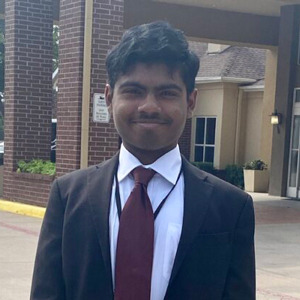by Raghav Pallapothu
It’s a warm summer morning, and I’m driving to my local hospital, drinking an iced tea. During the summer, I volunteered at the local hospital by organizing the gift shop, checking people in for blood drives, and playing the grand piano near the surgery waiting room.
However, my attention often drifted as the patient conversations with the staff caught my eye. There were times when patients would come in and not know basic information about their insurance information or even their overall health. They only knew they had an operation scheduled and that it was needed to save their lives. There were other scenarios when patients couldn't afford transportation to the hospital and would show up late to their operation, causing the operation to be canceled. It was evident that some of the patients checking in had never been to a hospital before, and they had only come because they required a life-saving operation.
These experiences led me to question what was going on in the lives of these patients. I started interacting with people in the waiting room where I played the piano. It became evident to me that there are multiple nonmedical factors that influence people’s health. The conditions in which people are born, grow up, and live shape their daily lives and health. These conditions are often a product of economic, societal, and political structures. Furthermore, several struggle to have transportation and access to health care and often come to the hospital later than the scheduled operation or (in some cases) never show up. I became invested in helping the people I spoke with as I was deeply touched by their heart-wrenching stories. One was a mom who chose not to go to the doctor because she could not take a day off from work and lose pay. This single, African American mom, who struggled to provide for her four children, ignored the lump in her breast for five years. Unfortunately, she came to the hospital too late, and her lump had progressed into a life-threatening cancer.
Poverty is correlated with poorer health outcomes and a higher risk of premature death, reports the Centers for Disease Control and Prevention. Social determinants of health care and structural racism are the key drivers of health inequities within communities. The director of the CDC, Dr. Rochelle Walensky, declared racism as a public threat in April of 2021 and urged that we address the inequities. In addition, women living in geographic areas with high poverty and low education levels have lower survival rates after a breast cancer diagnosis than people living in communities with a high average income rate, reports the National Institutes of Health. Poor women were 1.44 times more likely to die from breast cancer than those with a higher average income rate. For us to attain the goal of health equity, we have to address the social and economic inequities such as housing, education, employment, and wealth. The mom from earlier should have had the mammogram five years ago when she felt the lump, but she could not afford it. Breast cancer is the second leading cause of death for women in our country, with African American women being more likely to die from this deadly disease than any other race. It is heart-wrenching to see this as no family should have to lose a mother.
I strongly feel that we can improve the state of South Carolina by providing more resources like food, water, housing, education, transportation, and health insurance to neighborhoods with lower socioeconomic statuses. By striving to improve each and every neighborhood, we empower the citizens with the necessary tools to build a healthier and safer future for generations ahead. This ultimately leads to a healthy South Carolina which could be a model state for other states to follow. We need to prevent stories like the single mother I encountered. To inspire change in the world, we should strive for a future where empathy transcends prejudice, and we are united more by our strengths and similarities rather than our differences. We need to prevent another story like this, another family being hurt, and another person paying the price. The vicious cycle of poverty can only be addressed through a rigorous collaboration between community organizations, local churches, state lawmakers, and resource allocation from the government. Our duty as citizens of South Carolina is to provide and care for each other, regardless of race, education, or socioeconomic status. No family should be left behind.
Bibliography
CDC. “PLACES: Local Data for Better Health.” Centers for Disease Control and Prevention, March 8, 2021. https://www.cdc.gov/places/index.html.
WHO. “Closing the Gap in a Generation: Health Equity through Action on the Social Determinants of Health.” www.who.int, August 27, 2008. https://www.who.int/publications/i/item/9789241563703.
www.cdc.gov. “Environmental Justice | Tracking | NCEH | CDC,” February 26, 2021. https://www.cdc.gov/nceh/tracking/topics/EnvironmentalJustice.htm.

About Raghav Pallapothu
Raghav Pallapothu is a junior at River Bluff High School in Lexington, where Katharine Pyritz is his English teacher. An aspiring physician, Raghav aims to dedicate his future career to helping people and inspiring change about important healthcare issues.